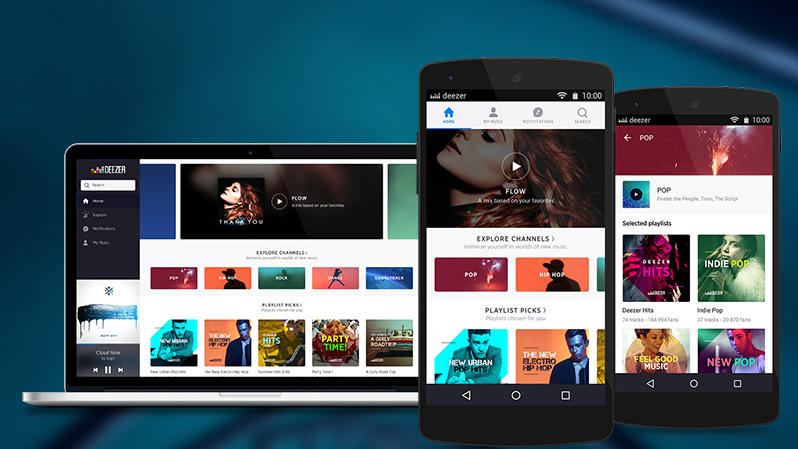Move over Tidal, Deezer is getting serious about hi-res audio with MQA support
Taking on Tidal

Bringing to an end Tidal's reign as the only hi-res music streaming service in town, MQA has announced that it's working with Deezer to bring its audio technology to the platform.
MQA is a music codec that allow hi-res audio files (generally defined as audio that's better than CD) to be compressed down to take up no more size than a standard CD-quality 16-bit/44.1kHz track.
The highest quality service offered by Deezer at the moment is CD-quality (16-bit/44.1kHz), but in order to get this service, called Deezer HiFi, you'll need to use the music streaming service with particular hardware from Sonos or Google.
The technology is already available through rival music streaming service Tidal, but this deal will mean you have much more choice about which service to use, in addition to allowing you to user Deezer-specific features such as 'Flow', its algorithmically-generated playlist feature.
It's not yet clear whether you'll need to pay for a specific tier of Deezer to access MQA streaming, or whether it will be available across all tiers of the services.
Tools for the job
In order to get the most out of MQA you'll need hardware that specifically supports it, although the company claims that audio quality will still increase (albeit by a smaller amount) without compatible hardware.
At the moment the amount of hardware available is somewhat thin on the ground. Audioquest's Dragonfly Red USB DAC supports the format, as does the recently announced LG V30 smart phone.
Get daily insight, inspiration and deals in your inbox
Sign up for breaking news, reviews, opinion, top tech deals, and more.
Music also needs to be encoded into MQA. Warner Music has committed to supporting the format, as has Universal Music, so the amount of tracks available is increasing at a decent pace.
It doesn't have the ubiquity of Spotify, but Deezer's support for MQA is an important step towards having the format being available everywhere.
Jon Porter is the ex-Home Technology Writer for TechRadar. He has also previously written for Practical Photoshop, Trusted Reviews, Inside Higher Ed, Al Bawaba, Gizmodo UK, Genetic Literacy Project, Via Satellite, Real Homes and Plant Services Magazine, and you can now find him writing for The Verge.
